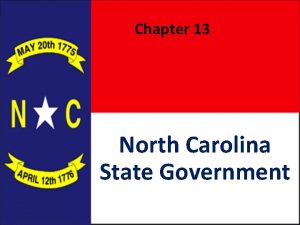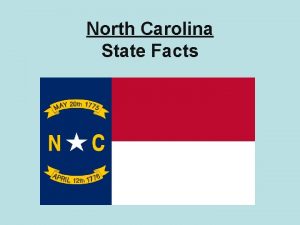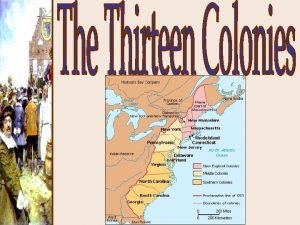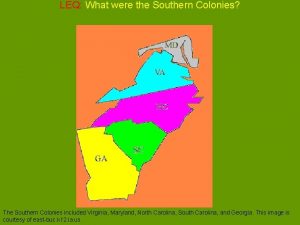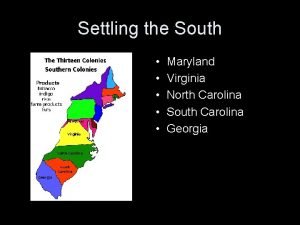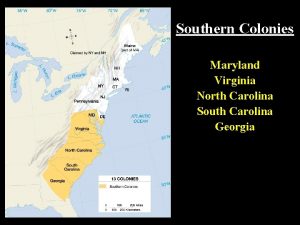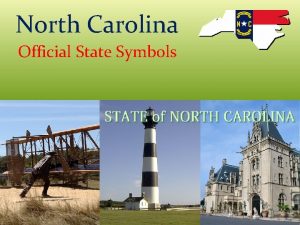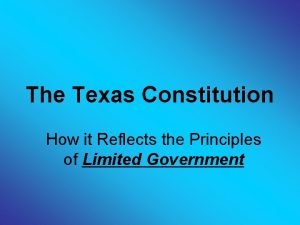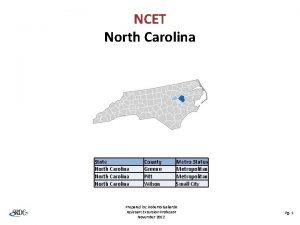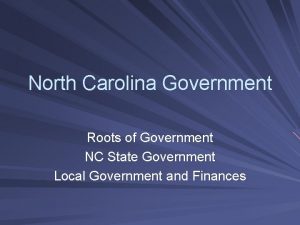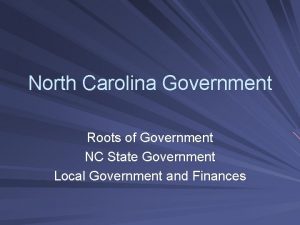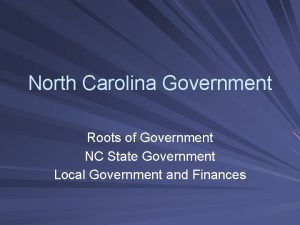State Government North Carolina North Carolinas Constitution Divided












- Slides: 12

State Government North Carolina

North Carolina’s Constitution • Divided into 14 articles – – Cardinal says: NC has had 3 Constitutions!! Article I- Declaration of Rights Article II-Legislative Branch Article III-Executive Branch Article IV-Judicial Branch • Considered a “Flexible Constitution” – – Based on certain principles such as: Popular Sovereignty Limited Government Separation of Powers • Checks and Balances • Federalism

Federalism • What is Federalism? – Power is shared by both the national governments and the state governments. • Why is Federalism important? – Ensures state governments have power to make laws specific to their state. • 10 th Amendments gives states reserved powers. – Reserved powers are not listed in the US Constitution.

Public Policy • What is Public Policy? – Government response to public issues. • State handles the majority of public policies. • Decisions made by State and Local governments affect a person’s life more directly. • Examples? ? ?

North Carolina Legislature • Bicameral Legislature known as the General Assembly • General Assembly is divided into two chambers: – House of Representatives • 120 members – Senate • 50 members • General Assembly’s job is to MAKE LAWS – Use the same committee process found on the national level

Citizen Participation • Citizens may participate in the law making process through referendums. – Referendum • Allows citizens to vote directly on whether to approve or disapprove of a proposed law. • Vote on General Assembly members.

Electing State Legislators • Seats in the legislature apportioned. – Apportionment • Dividing a state into districts based on the state census. • Each Legislative member represents a district.

Executive Branch • Governor is the chief executive of a state. – Job: Enforce the law – Elected by the people to four year terms • Lieutenant Governor is second in charge after the governor.

Roles of the Governor • Commander in Chief – In charge of North Carolina National Guard • Economic Role – Prepares the state’s budget • Legislative Role – Introduce bills – Veto power • Does not have the line-item veto • Judicial Role – Alter the sentencing of the convicted • Pardon • commute

North Carolina Courts • Make sure laws passed by the General Assembly are constitutional. – NC Judicial branch gained judicial review in the court case Bayard vs. Singleton.

Structure of State Courts • NC courts are organized into separate divisions. – Trial Division • District Courts – Hear misdemeanors and criminal cases • Superior Courts – Hears criminal cases exceeding 10, 000 dollars. – Appellate Division • Appeals Court – Hears appeals from District and Superior Courts – Known as an “Intermediate Appeals Court” • North Carolina Supreme Court – Highest court in NC – Interprets the Constitution, Appeals cases, and hears cases involving the death penalty.

Important NC Supreme Court Cases • Bayard vs. Singleton – Gave NC Supreme Court judicial review • State vs. Mann – North Carolina Supreme Court case ruling that slaves were property. • Overturned by the 13 th amendment • Leandro vs. North Carolina – States each child is guaranteed a sound basic education through adequate funding from local government.
 Chapter 13: north carolina state government
Chapter 13: north carolina state government State bird of nc
State bird of nc Georgia, south carolina, north carolina, virginia, maryland
Georgia, south carolina, north carolina, virginia, maryland Map of north carolina and south carolina
Map of north carolina and south carolina Maryland virginia north and south carolina and georgia
Maryland virginia north and south carolina and georgia Virginia, maryland, north carolina, south carolina, georgia
Virginia, maryland, north carolina, south carolina, georgia Demystifying the cloud
Demystifying the cloud Local government investment pool services north carolina
Local government investment pool services north carolina North carolina's state motto
North carolina's state motto North carolina state fruit
North carolina state fruit North carolina state university
North carolina state university Carolinas ghin support
Carolinas ghin support Texas constitution vs u.s. constitution venn diagram
Texas constitution vs u.s. constitution venn diagram
